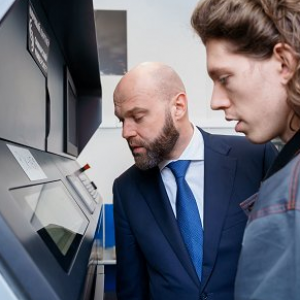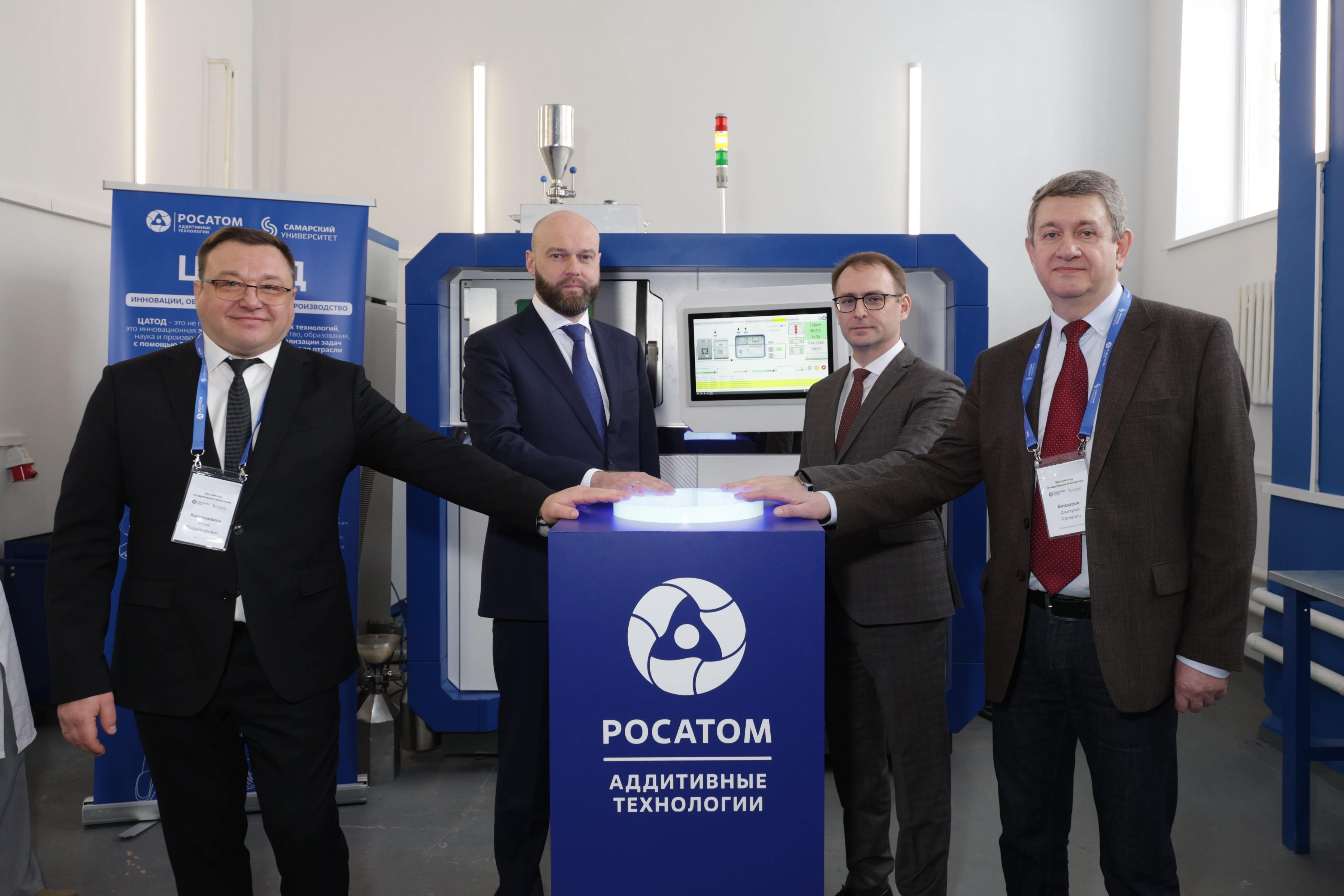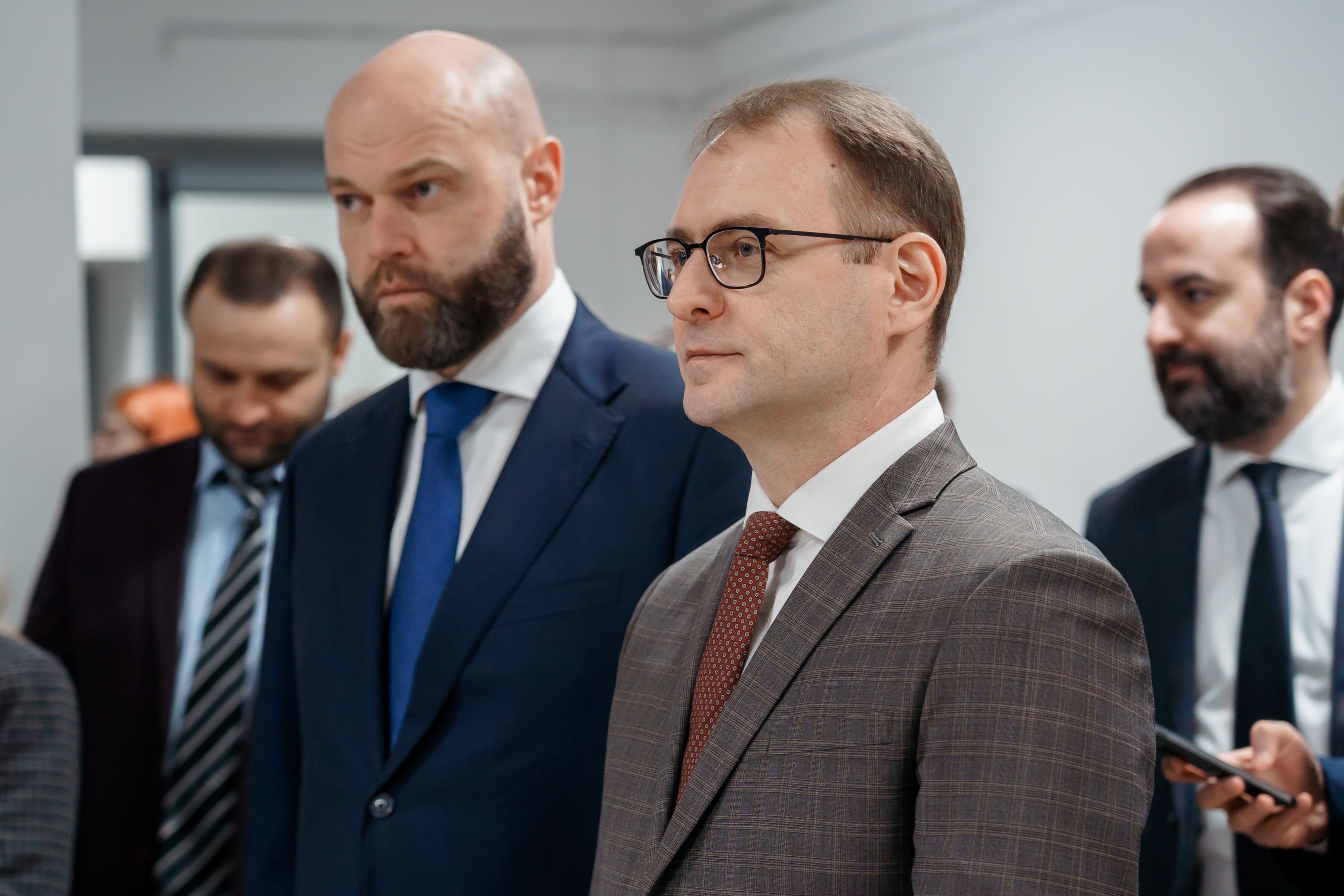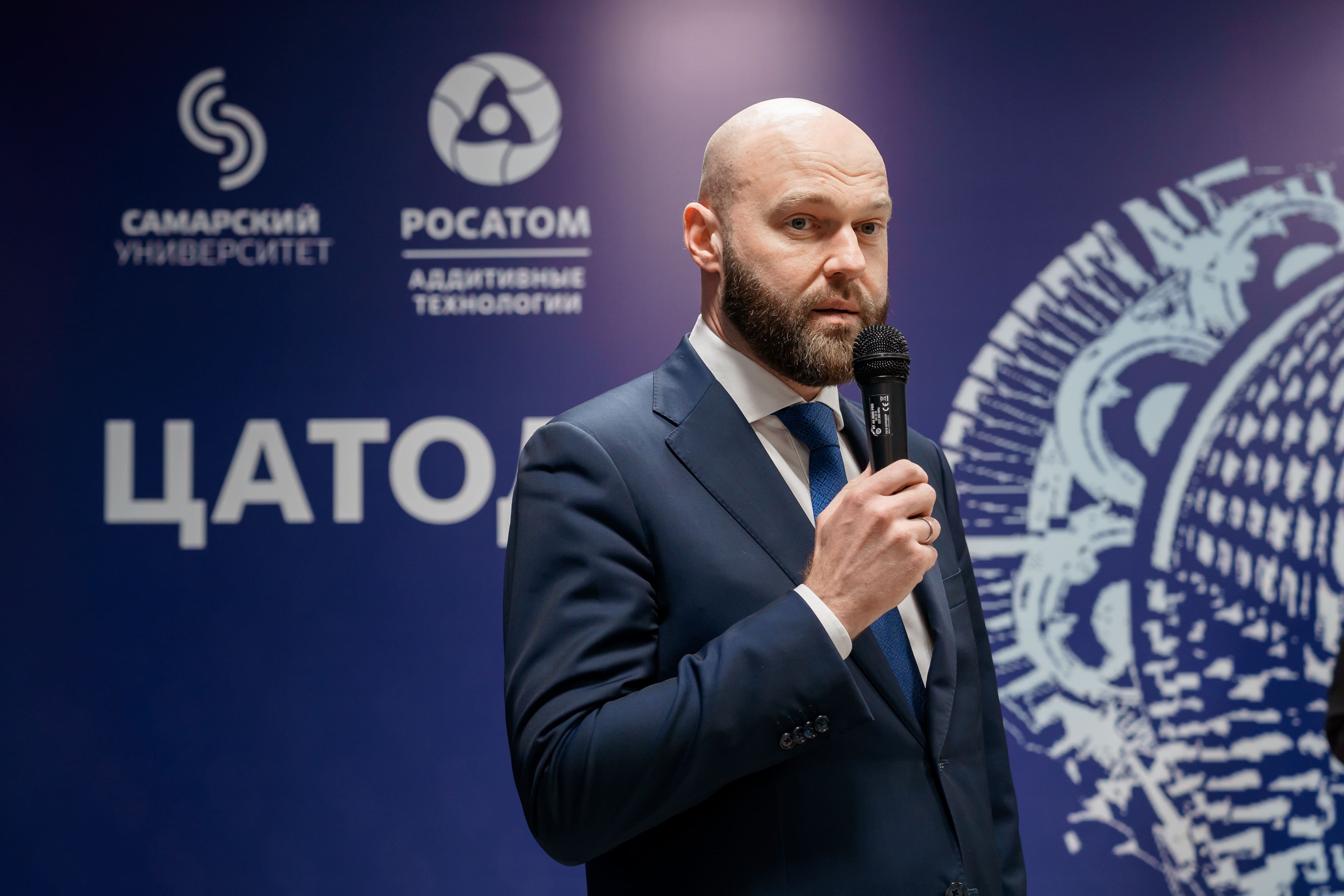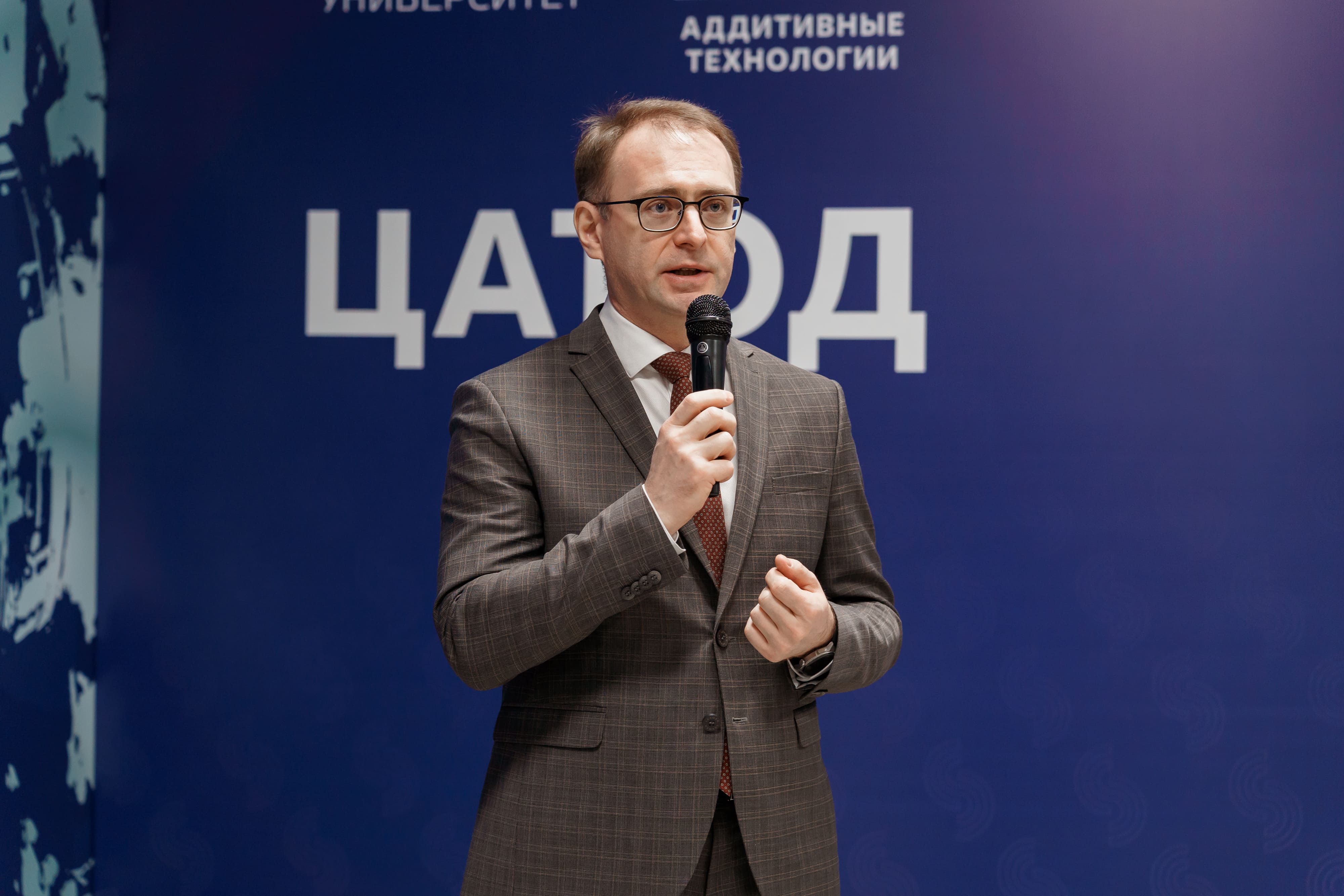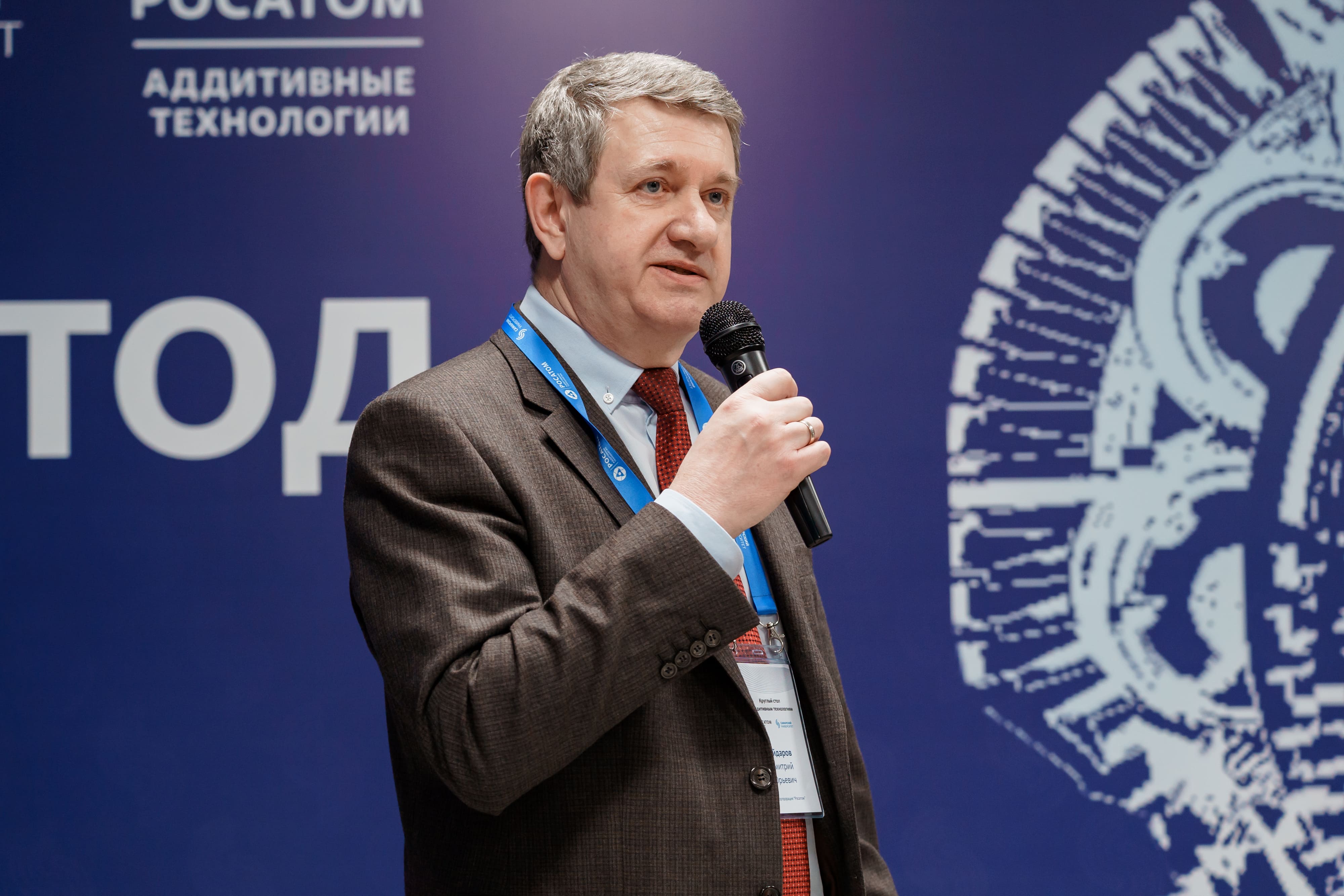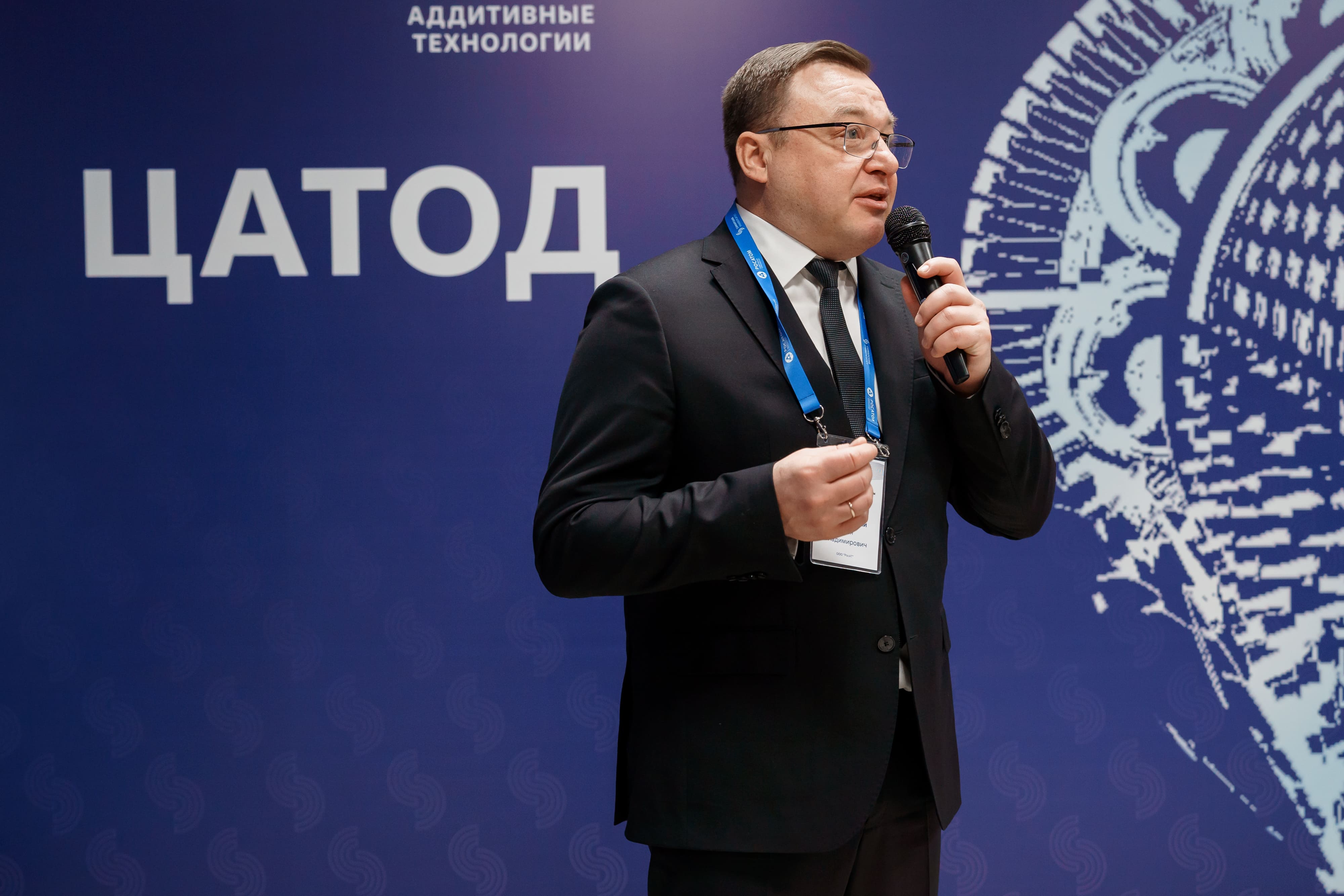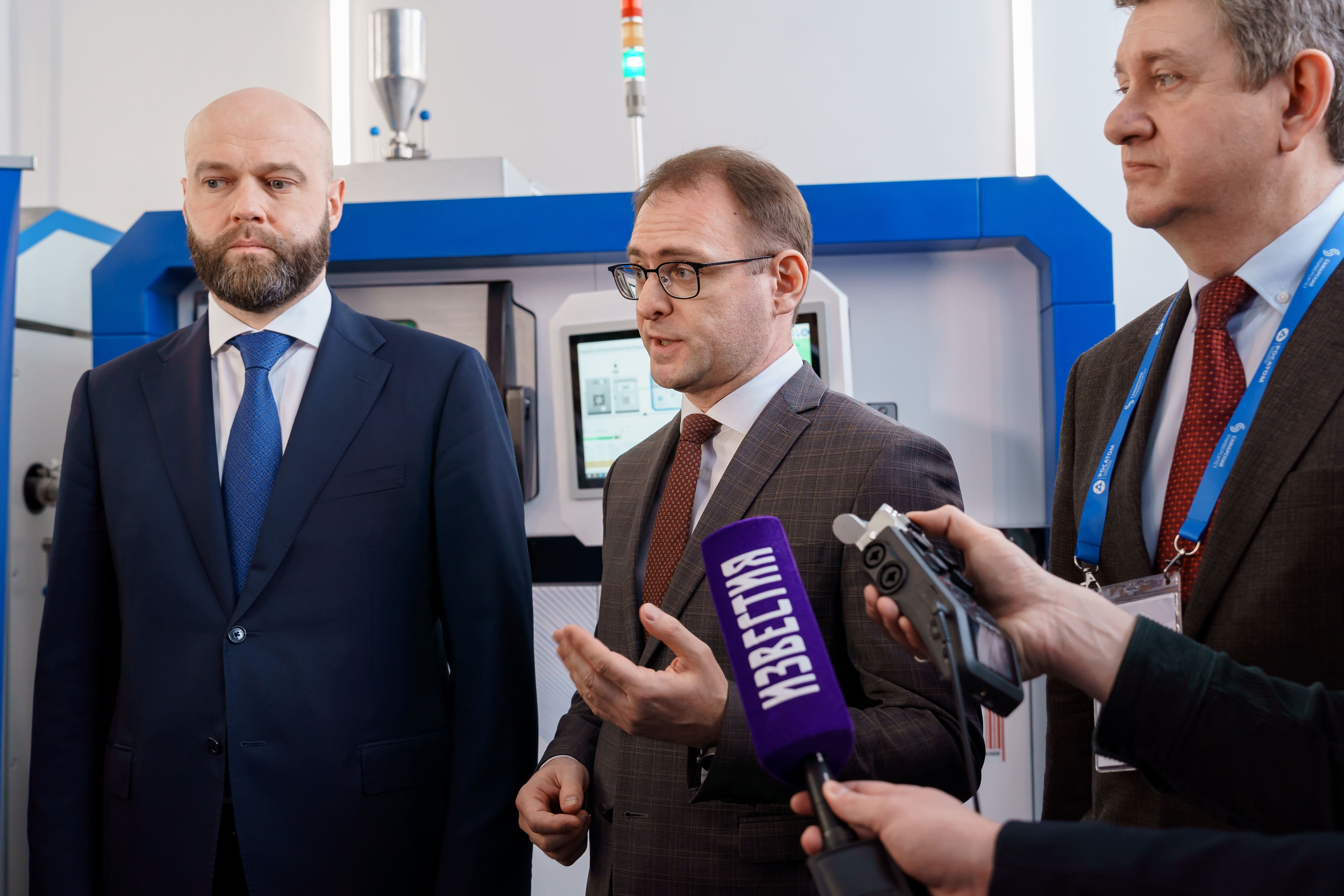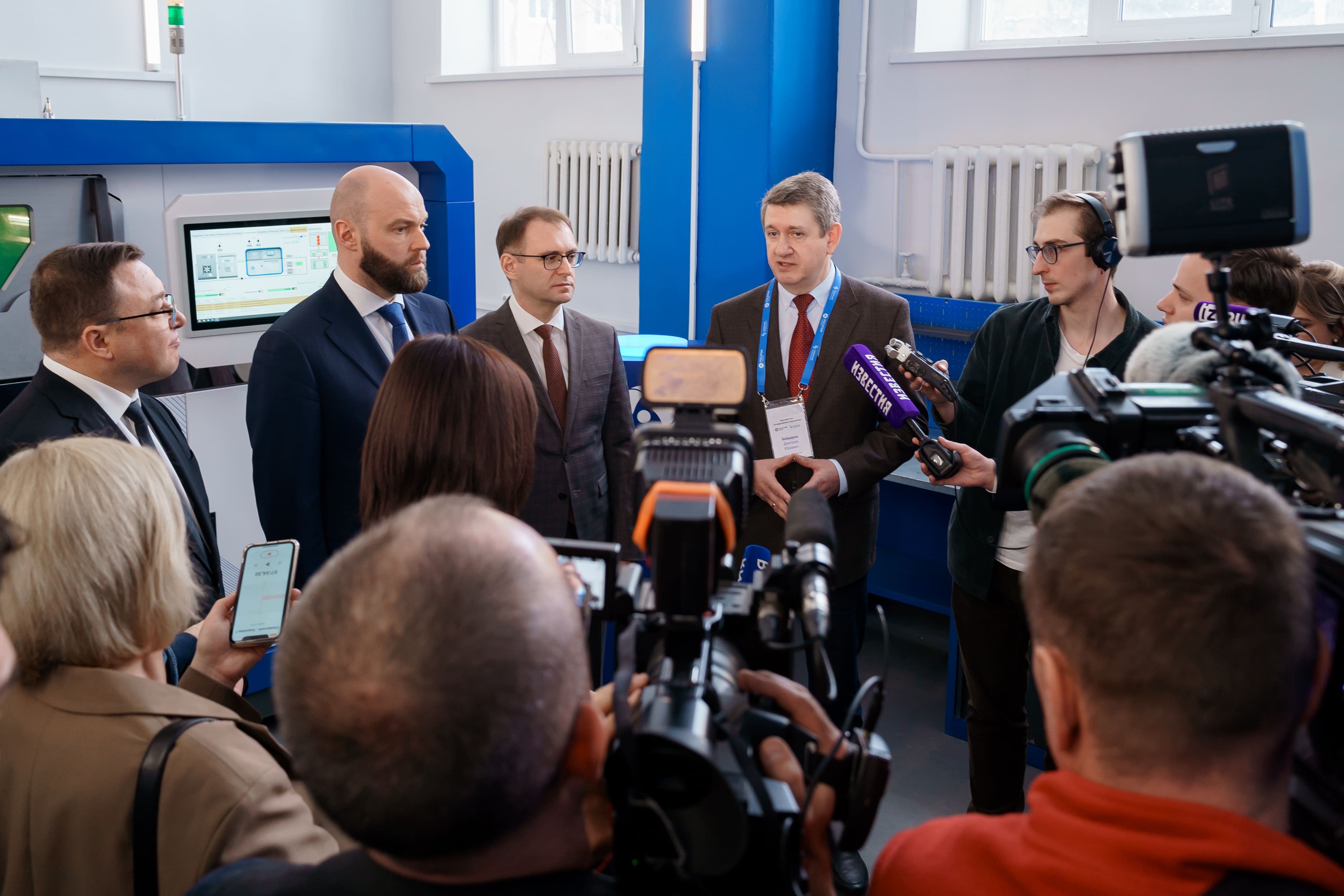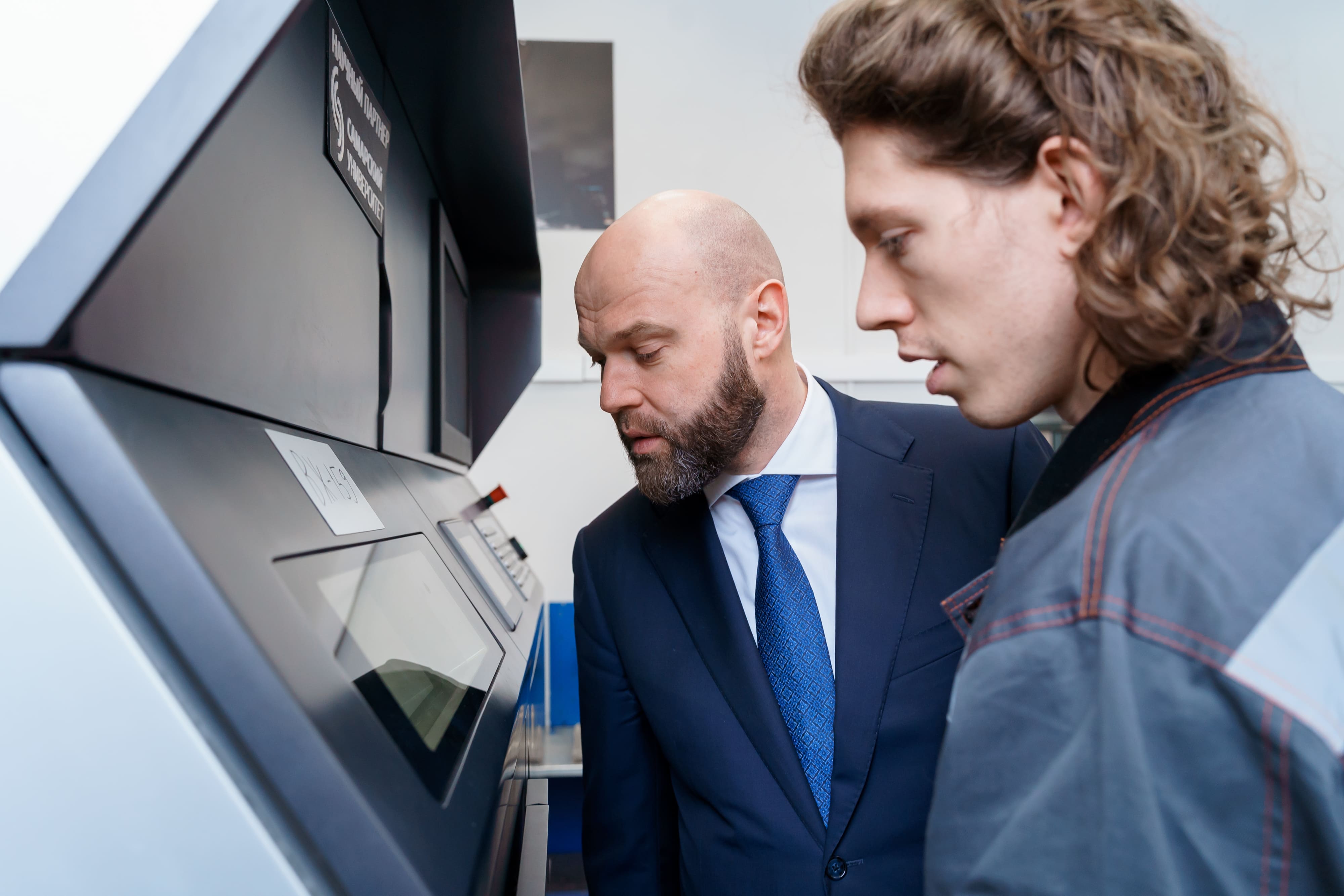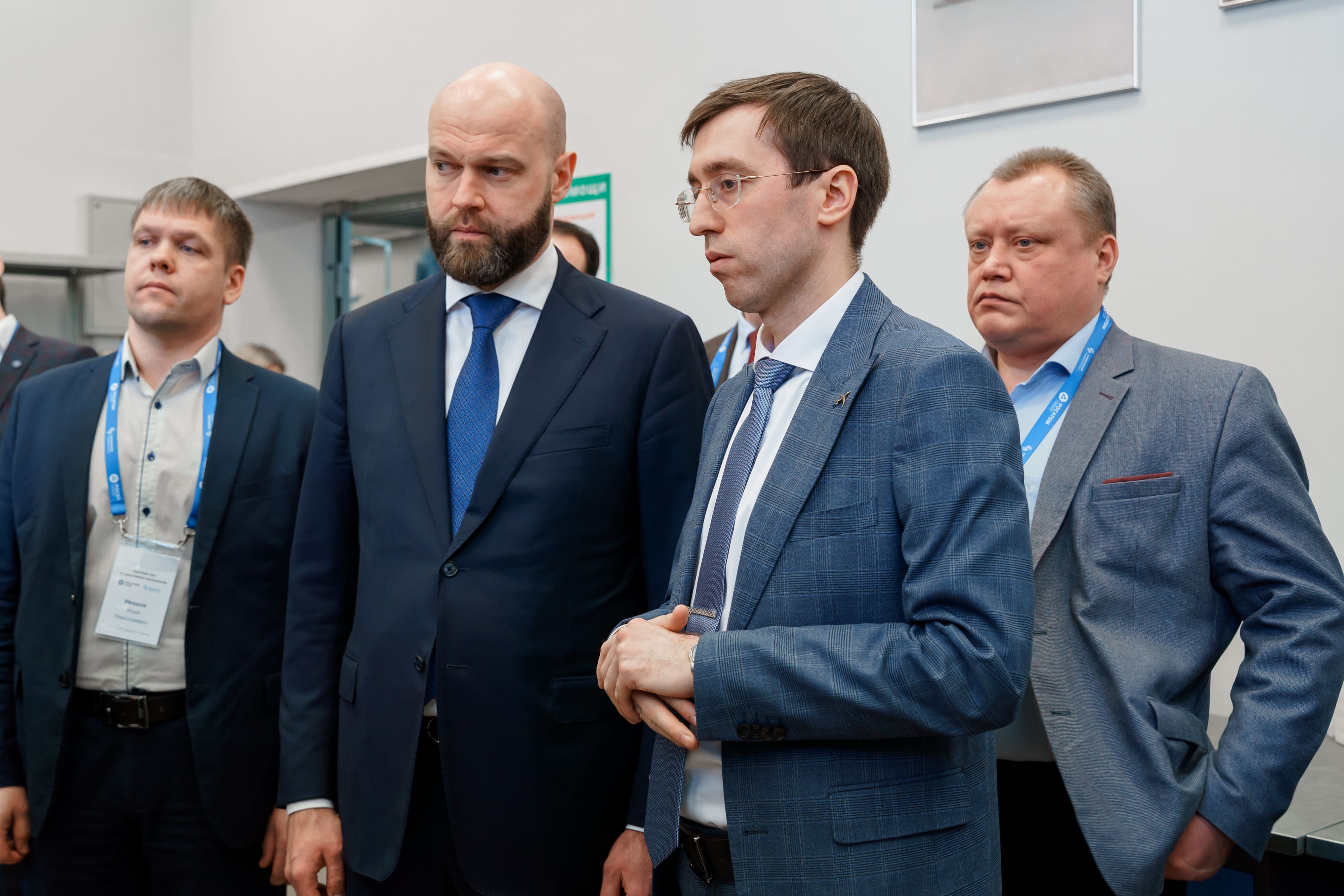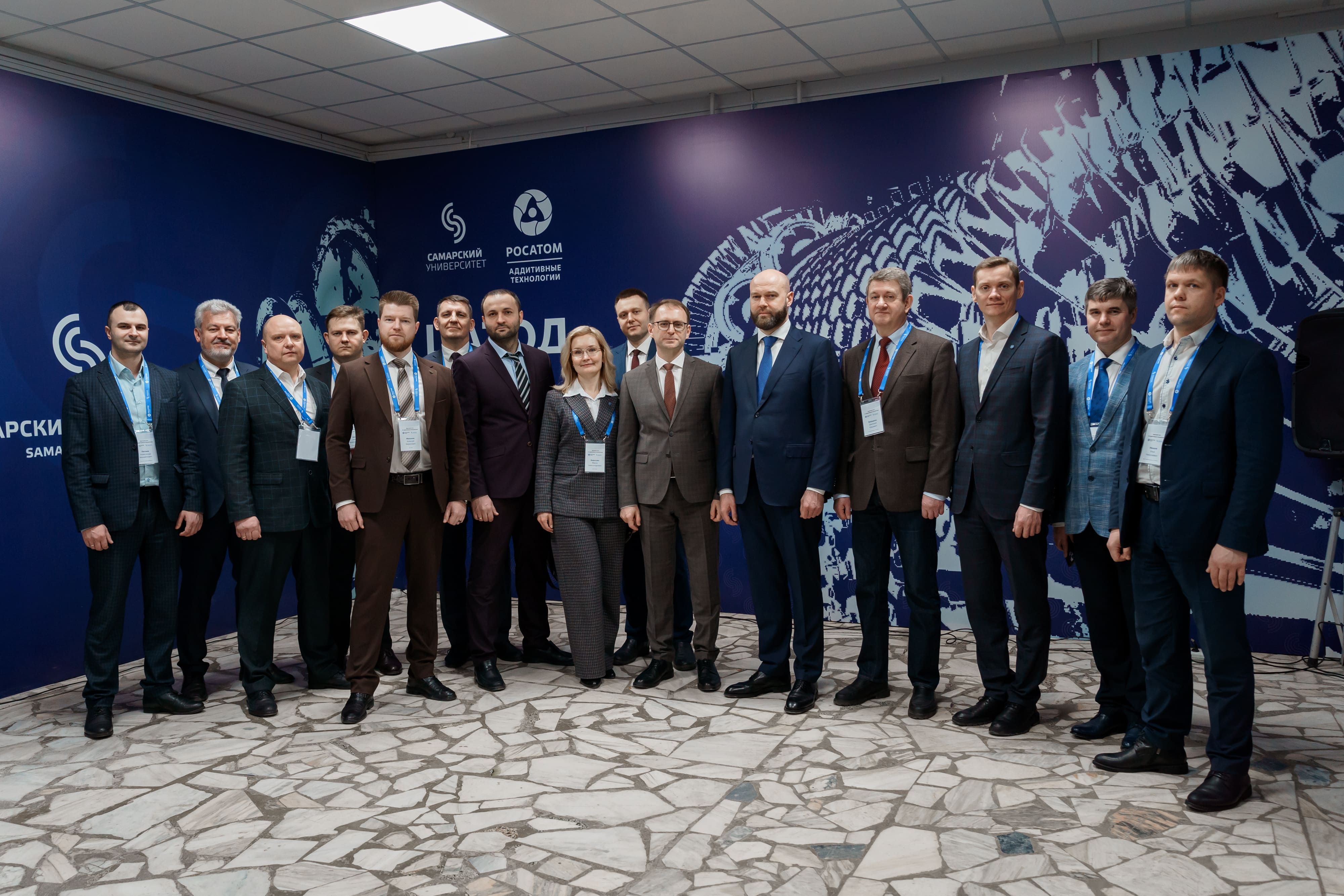Samara National Research University held the opening of the Centre for Public-Access Additive Technologies (CPAAT) established with the support of the Additive Technologies business line of the Rosatom Fuel Division.
The opening ceremony was attended by Mikhail Smirnov, First Vice Governor and Chairman of the Government of the Samara Region, Mark Shleenkov, Minister of Science and Higher Education of the Samara Region, the representatives of the nuclear industry – Dmitry Baidarov, Director of the Rosatom State Corporation’s New-Business Support Department, Ilya Kavelashvili, Director of the Additive Technology Business Unit at Rosatom’s Fuel Division, Aleksandr Chernenko, Director of the Rosatom State Corporation’s Representative Office in the Volga Federal District, and other high-ranking officials. The representative delegation was received by Vladimir Bogatyrev, Rector of Samara National Research University.
The most important task of the CPAAT is the advanced training of highly-qualified specialists in additive manufacturing, as well as conducting research and development work on creating domestic 3D printing supplies and technologies. Schools and kindergartens of the Samara Region are planned to be involved in the CPAAT’s activities on the basis of the University, for the purpose of creating the ecosystem of the advanced training of engineering personnel "Kindergarten – School – University – Enterprise" in the region. The Centre will also fulfill orders from industrial enterprises of the Volga Federal District, giving them the opportunity to appreciate advantages of 3D printing before purchasing the equipment and organizing additive manufacturing at their sites.
The Centre is equipped with the RusMelt 300M 3D printer manufactured by Rosatom’s Fuel Division, which grows products from metal-powder compositions of stainless steel and heat-resistant materials using the Selective Laser Melting (SLM) technology. The device is designed for manufacturing metal parts from powders based on aluminum, titanium, nickel, cobalt-chromium and stainless steels. The production area of this printer is 300x300x370mm. The capacity is up to 35 cubic cm per hour. The RusMelt 300M provides high-quality printed products combined with the ease of operation and maintenance. It is expected that combining educational, research and production activities in additive technologies with their further commercialization will contribute to the region’s technological development and the local manufacturing companies’ product competitiveness.
"Establishing the Centre for Additive Technologies at Samara University is certainly a long-awaited and very important event for us. I would like to highlight the role of the Rosatom State Corporation as one of leading providers of future technologies. We are glad that the Rosatom State Corporation and Samara University have agreed, and our University has become one of the sites where such a Centre has been established and is developing. In future, the Government of the Samara Region is ready to provide all possible assistance in creating sites with the close relationship of education and science with production to be formed. I wish the Centre and future engineers, who are now the University’s students, successfully work for the benefit of the Samara Region and our entire country", addressed Mikhail Smirnov the participants in the ceremony.
"The cooperation of the nuclear industry with educational institutions takes place within the framework of the development of the project on creating the CPAAT federal network and the formation of the "Kindergarten – School – University – Enterprise" ecosystem. These initiatives will allow for early career guidance, developing "additive thinking" in children from an early age, and stimulating the development of human resources in additive technologies in response to the needs of domestic industrial companies. At present, five such Centres successfully operate in the universities. I am sure that Samara University’s competencies in the additive-technology field, as well as its specialization in manufacturing parts for the aerospace industry, will become the additional competitive advantage of this CPAAT", noted Ilya Kavelashvili.
«The Rosatom State Corporation is represented in 41 constituent entities of the Russian Federation. And we understand the need for highly professional personnel, for meeting government challenges in ensuring technological leadership. And only in the interaction of the industrial customer with universities and with regional authorities can we achieve the outcomes that will provide the country with highly-skilled employees capable of solving the tasks facing our country. Opening the CPAAT in Samara will allow us to take another additional step in the development of our technological leadership so that we as a country could become stronger", commented Dmitry Baidarov, Director of the Rosatom State Corporation’s New-Business Support Department.
Samara University has been researching additive technologies since 2011. At that time, the first laboratory on this theme was created, and today, the University has four large research units of this profile. They are equipped with modern devices for laser direct deposition, selective laser melting, and a number of others.
"The range of scientific research and development in additive technologies conducted by our scientists is very wide: from aircraft propulsion engineering to medical implants, from products that fit in the palm of your hand to large-sized parts weighing up to
500 kg, from plastics and aluminum-based alloys to titanium alloys and heat-resistant steels. Results of these R&D works are implemented by our industrial partners, in particular, at the enterprises of the United Engine Corporation. At Samara University additive technologies are deeply integrated into the educational process: they are studied by students of the Institute of Engines and Power Plant Engineering, the Institute of Aerospace Engineering, as well as the Advanced Aerospace Engineering School. The Centre that we open today will help not only intensify career guidance activities among future enrollees. This is a big step in strengthening the partnership with the Rosatom State Corporation. As for the effect of the launch of the new RusMelt 300M dual-laser device, it will expand the University’s capabilities in conducting scientific research and especially in manufacturing experimental batches of small-size parts in the interests of users of the CPAAT", stated Vladimir Bogatyrev, Rector of Samara University.
For reference:
The Additive Technologies Business Line of the Rosatom State Corporation integrates the full production cycle from the development of 3D printers and components to special powders, software, manufacturing printing supplies and training. The company provides Russian manufacturing enterprises of strategic industries with innovative and reliable equipment, materials and professional service for introducing additive manufacturing technologies. https://rosat.tvel.ru/
For the successful implementation of additive technologies and the creation of human resources in the future, work is underway with the younger generation from kindergartens to universities. For this purpose, the federal network of the Centres for Public-Access Additive Technologies (CPAAT) is being created. The CPAAT is tasked to develop domestic 3D printing supplies and technologies, as well as advanced training of highly-qualified additive manufacturing engineers for enterprises of the Rosatom State Corporation and the major technology companies. At present, in Russia, there are only seven such Centres: in 2023, the Centres were opened at Udmurt State University in Izhevsk and in the NGO “City of Childhood” in Krasnogorsk near Moscow; in 2024, the CPAATs were established at Tomsk Polytechnic University, Belgorod State University, in the NGO “City of Childhood” in Khimki, as well as in Khabarovsk and Samara.
Samara National Research University trains specialists for rocket and space, aviation, radioelectronic, metallurgical, automotive, information and communication, etc., industries. Opening the CPAAT in Samara will allow the University to strengthen the training of personnel for the additive manufacture, develop cooperation with enterprises in the real sector of the economy in the region, as well as engage in the R&D on introducing additive technologies in the nuclear industry.
The Government of the Russian Federation and large Russian companies pay great attention to systematic work on unlocking the potential of students and young employees. Rosatom and its enterprises are involved in establishing basic departments in Russian higher-education institutions, implementing scholarship support programs, major educational projects, organizing practices and internships for students, with their subsequent employment. Young professionals gain new useful skills, which helps them in their career growth.
 RU
RU  EN
EN  CN
CN  ES
ES 